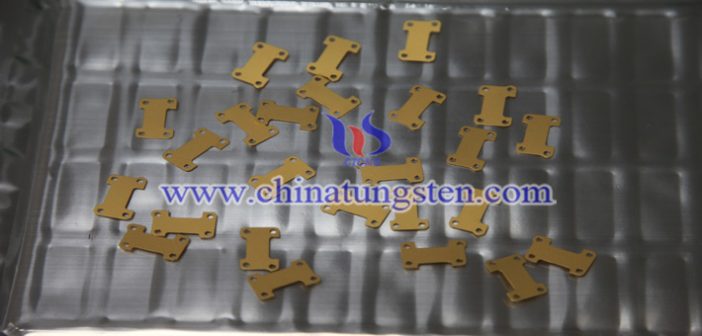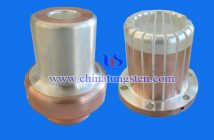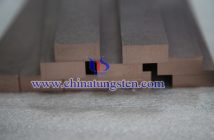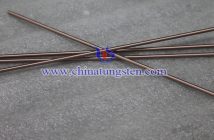Inspired from powder injection molding of conventional powder metallurgy (PM), tungsten-copper composite powder injection molding technology is based on the injection of tungsten skeleton is formed, and it breaks the limitations of conventional Infiltration produced tungsten-copper composite. Metal injection molding (MIM) is a kind of process that suitable for fabricating the products with complex or irregular shape, and it was first extended by the plastic injection molding industry. In recent years, a substantial increase in the content of the solid particles and the binder is completely removed during sintering densification of the compact, resulting in metal products with high strength, excellent wear and corrosion resistance.
Its basic steps is that choose the metal powder meet the requirements of MIM (includes shape of powder, the granularity, the content, specific surface and so on) and corresponding binder (MIM is the core technology, with enhanced liquidity and maintain compact shape ding), At a certain temperature using appropriate methods uniformly mixing the powder with a binder feed, injection molding after granulating, injection molding and degreasing obtained the products. Tungsten-copper composite material due to its high strength, high density, high melting point, good chemical stability, and is a good electrical and thermal conductivity of the heat sink material, not only from the field of military aviation in a number of electrical contacts and electrodes have a wide range the use of some of the tightness in demanding electronic packaging materials is also a good choice.
The main ding of packaging materials includes mechanical support, signal transduction, heat radiating, sealing and protecting products, so they requested that the material has a certain mechanical strength, good electrical and thermal capacity, chemical stability, and product line expansion coefficient matched material, easily for producing Conventional substrates has been difficult to meet the rising temperature of the circuit and to ensure steady long run, this will affect the reliability of electronic components to some certain extent. Therefore, tungsten copper material becomes more and more significant in microelectronics packaging. Electronic components and packaging material due to small size, complex structure and other reasons, it is difficult for mass production by conventional pressing sintering process method, which makes tungsten copper powder injection molding technology has been further developed.
Related researchers uses 10%, 15%, 20% content of copper for powder injection molding, which after infiltration obtained, fine-grained tungsten-copper composite materials, have reached a density more than 99%, transverse rupture strength reaches 1500MPa. Some scholars have also done the injection molding parameters tungsten copper W-30Cu nano-composites T-die, and after forming the binder removal process to obtain a good surface quality, regular shape of the compact, the adhesive extrusion rate reached more than 99%, can be obtained through direct sintering manner relative density higher than 96% of tungsten-copper composite parts. However, the process will caused by tungsten (W) powder loading of different or the intake air in the mixing process and lead to material gathered in the stress state, a certain amount of defects such as large irregularly shaped cracks or holes generated in the process of degreasing, it is easy leading to infiltration of copper pool and closed pores formed.




